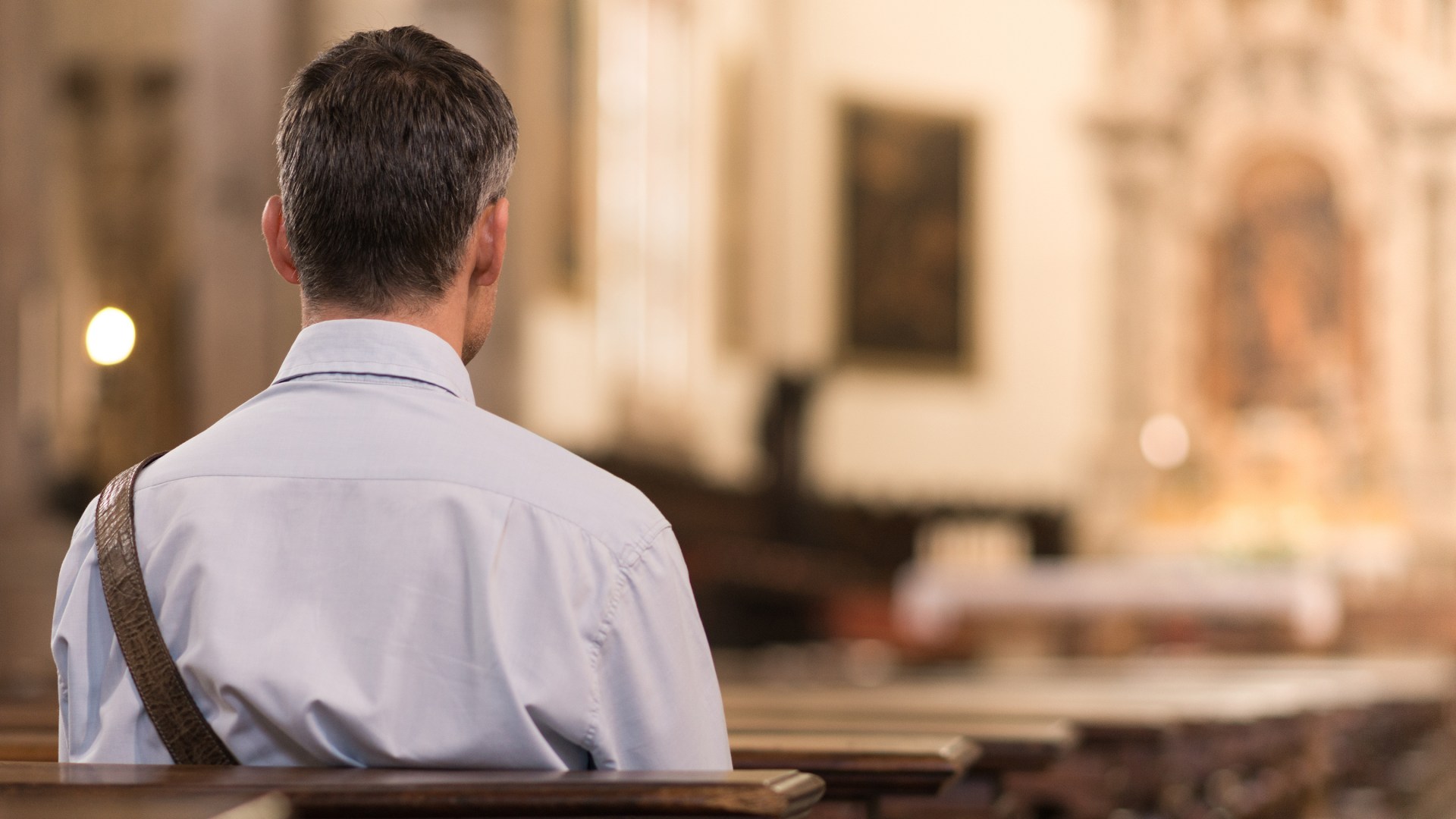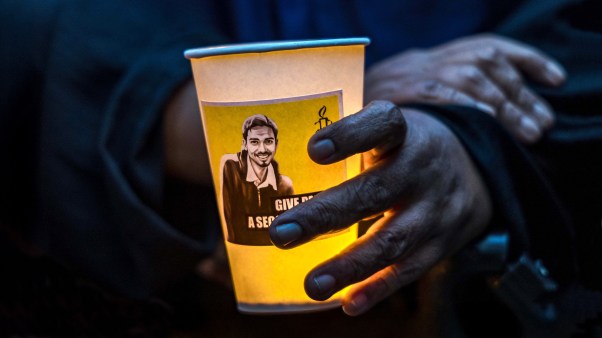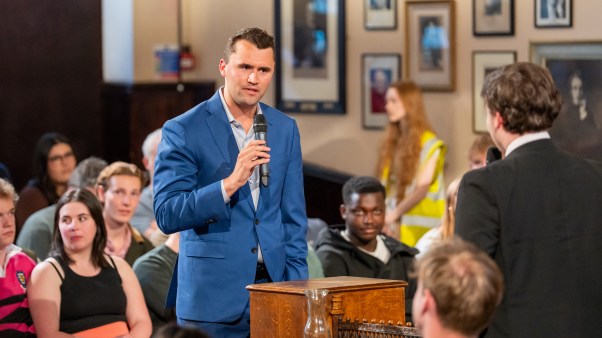During the 1990s and early 2000s, my grandmother actively supported the federal Defense of Marriage Act (DOMA), as well as her state’s amendment to define marriage as between one man and one woman. When I came out to her, she wanted to learn more. Upon first reading the story of someone who had grown up as a gay Christian and was committed to celibacy, she told me, “I’ve never heard an account like this before—from someone who involuntarily has these experiences but doesn’t pursue them.”
In previous decades, mainstream discourse on homosexuality had presented her with a false dichotomy: A person with same-sex attractions could either choose to totally embrace them and promiscuously act them out or else flee them entirely—ideally, with the goal of experiencing them no longer.
It is challenging to be caught involuntarily in the fallout of such a historically polarizing conflict, yet this is where Greg Coles has also been. As a Christian who, since the onset of adolescence, has experienced persistent attractions to other men, he has landed at the center of the debate about the correct moral response to homosexuality. From this place of tension, where a person can feel wrenched two directions, Coles decided to stand firm and tell his narrative of self-discovery. In Single, Gay, Christian: A Personal Journey of Faith and Sexual Identity, Coles writes without an agenda but instead with the hope of lighting a beacon for other same-sex-oriented Christians who feel trapped a similarly daunting place.
Wrestling with God
Coles was raised in a Christian household, the son of American teachers in the politically restless Indonesia of the 1990s. Having no struggle with lust toward women, he believed that, unlike his male friends, he had his sexual life together. Then he recognized a pattern in his thoughts about other men and came to reluctantly admit, “I’m gay.”
Feeling like a freak, Coles pleaded with God to make him straight. He experimented with dating women, but this did nothing to change his attractions toward men. His first kiss, with a woman, felt like pressing his lips to “a grapefruit.” He knew his same-sex orientation was not changing, but he lacked the confidence to move forward as a gay person in conservative Christian circles. At times, he wished that he would die in some kind of accident.
Desperate for consolation, Coles turned to Scripture, hoping to find some support for same-sex marriages. After carefully examining various biblical and theological arguments, he formed a defensible, reasoned rationale affirming romantic relationships with other men, or so he thought. Yet, throughout his intense prayer and wrestling with the divine, God pointed him to costly discipleship through singleness. By pursuing a same-sex relationship, Coles felt that he would be doing wrong by the biblical passages most directly related to his experience. And so he made the painful decision to heed the call of celibacy.
When Coles brought up the possibility of family friends or ministry partners refusing to accept him upon learning that he was gay, his typically guarded father replied, “If someone has a problem with that, then screw them.” To be sure, Coles’s parents had questions, but they never grilled him, and their profession of support came about quickly and decisively. In a country where up to 40 percent of homeless youth are LGBTQ, this is the dreamed-of reaction from parents. As one pessimistic aphorism has it, “When a child comes out of the closet, the parents go in.” Anxiety and false guilt can make parents confront, albeit less directly, some of the same feelings their LGBTQ children have faced.
Discern, Study, and Pray
Although he has come to a traditional view of sexuality, Coles hesitates to consider himself a “role model”—an ideal case illustrating how one goes about making this journey. People wrestling with these issues need breathing room and time to work through their concerns without the pressure of constant scrutiny. The church can provide space for same-sex-attracted believers to discern, study, and pray. As Coles poignantly puts it, “You can’t just tell us what to believe and expect us to believe it. That’s not how belief works—at least, that’s not how it worked for me.”
Persuasion comes through gentleness and patience. We sometimes act as though committed gay believers should have their approach to reconciling faith and sexuality entirely worked out, right this moment. But those who have trod the same path know how painfully difficult this is to manage. Coles is humble enough to admit that he does not see the answers with complete clarity. As Paul writes in 1 Corinthians, “For now we see only a reflection as in a mirror; then we shall see face to face. Now I know in part; then I shall know fully, even as I am fully known” (13:12).
Sadly, some churches have behaved as though the Bible’s rejection of homosexual practice essentially ends the discussion. Coles gets at this deficiency with what he calls the “bumper sticker hermeneutic”: the assumption that merely reciting the six Bible passages directly addressing homosexuality—likely lifted out of context—will offer sufficient persuasion. We need to build on a raw doctrinal foundation by thinking with more complexity, especially about how to respond compassionately to fellow believers experiencing same-sex attraction. We can also bring valuable insights from theology, history, science, anthropology, and psychology to the table. Here in the United States, at least, you would have trouble finding anyone unaware that the Bible can furnish an argument against same-sex sexual relations. However, for this teaching to be a source of life and encouragement, we will have to do our utmost to help the same-sex-attracted brother or sister to, as Coles states, “thrive as a celibate gay person in the church.”
Evangelicals have frequently portrayed singleness as a less-than-ideal vocation—a (hopefully) temporary rest station on the road to marital bliss. But the celibate gay Christian is not at a temporary rest station and can experience intense loneliness pondering the future, just as Adam did in the Garden. When gay people are flatly told to “just be celibate,” this feels harsh and seems like a demand to settle for less, if not an expression of outright prejudice. The requirement can feel like an unnatural expectation of loneliness for the rest of their lives. The church can take more seriously the loneliness the same-sex attracted are grappling with and offer a place where they can find emotional fulfillment in Christian community.
According to research, younger generations of LGBTQ people are returning to church, and we can give them a warm and unambiguous welcome. The wonder of being fully known and loved by God should be felt by everyone who knocks. To imitate Christ and expand his kingdom, we can open the door (Matt. 7:7).
Helpful Resource
Coles admits that he has not suffered discrimination to the degree experienced by many other LGBTQ people. He wasn’t kicked out of his house or church, where he leads worship. Nor was he ever verbally or physically attacked on account of his sexuality. One of his reservations in writing the book was that his celibacy could become “a means by which other Christians feel justified in condemning non-celibate gay men and lesbian women.” Rather, the church might give the same space to work out these issues as many churches do with unmarried couples who visit. These churches patiently work with them as they return week after week, as they slowly come to understand the Bible’s teaching on extramarital sex. Can we not have a similar attitude toward same-sex-oriented people, especially when their situations are so much more complex?
Christian young people struggling to come to terms with a same-sex orientation will find Single, Gay, Christian to be a helpful resource, as will parents and church leaders looking to learn more about homosexuality—and about how to respond to sons, daughters, and church members who are coming out or asking questions. Youth groups and Bible studies would also benefit from working through these issues together. Coles has told an engaging, humble, grounded story that pushes us to develop a workable theology of singleness while thinking rigorously about better ways to love and respect gay people—inside and outside the church.
Tyler Streckert earned a master’s degree in history from Wheaton Graduate School in 2015. His article “Coming Out at Wheaton College” appeared in the June 2016 issue of Christianity Today.










